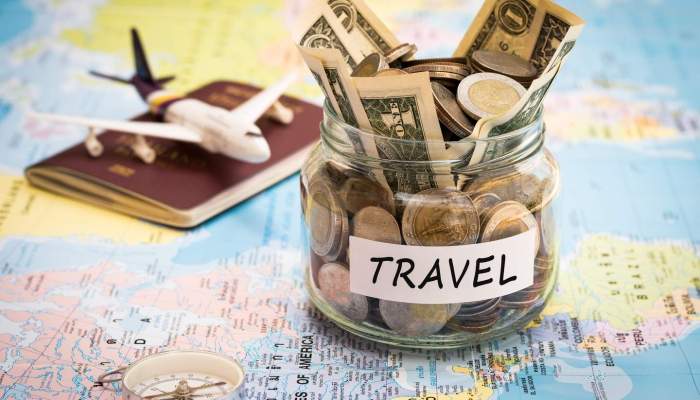Cheapest Way To Travel The World isn’t about sacrificing experiences; it’s about maximizing them. This isn’t just a guide; it’s a strategic roadmap to unlocking global adventures without breaking the bank. We’ll dissect the art of budget travel, revealing hidden gems and actionable strategies to transform your wanderlust into reality. From finding ridiculously cheap flights and accommodation to mastering the art of eating like a local and utilizing free activities, we’ll equip you with the knowledge to explore the world on your terms.
This comprehensive guide covers everything from fundamental budgeting techniques and savvy flight-booking strategies to uncovering hidden accommodation gems and utilizing cost-effective transportation options. We’ll delve into the nuances of each aspect, offering practical tips and real-world examples to ensure your journey is both affordable and unforgettable. Get ready to ditch the expensive tourist traps and embrace authentic, budget-friendly travel experiences.
Budget Travel Fundamentals: Cheapest Way To Travel The World

Unlocking the secrets to affordable global exploration requires understanding the nuances of budget travel. While the allure of exotic destinations is undeniable, navigating the financial aspects is crucial for a successful and stress-free adventure. This section delves into the core principles of budget travel, equipping you with the knowledge and tools to make your wanderlust a reality without breaking the bank.
Backpacking Versus Budget Travel
Backpacking and budget travel are often used interchangeably, but there are key distinctions. Backpacking typically involves a more minimalist approach, prioritizing affordability above all else. Backpackers often rely on hostels, public transportation, and free activities. Budget travel, while still cost-conscious, offers a broader spectrum. It might incorporate occasional splurges on nicer accommodations or experiences, while still maintaining a focus on value for money.
The core difference lies in the level of comfort and the willingness to compromise on amenities for cost savings. Backpacking is a subset of budget travel, representing its most extreme form of cost reduction.
Essential Budgeting Apps for Expense Tracking
Tracking your expenses is paramount for successful budget travel. These apps provide real-time insights into your spending habits, allowing for informed adjustments throughout your journey. Here are five essential tools:
- Trail Wallet: This app excels at simple expense tracking, offering clear visualizations of your spending across different categories. Its user-friendly interface makes it ideal for those new to budgeting apps.
- Mint: Mint provides a comprehensive overview of your finances, connecting to your bank accounts and credit cards for a holistic view of your spending. Its features extend beyond travel budgeting, offering broader financial management tools.
- Goodbudget: Based on the envelope budgeting system, Goodbudget allows you to allocate specific amounts to different categories, helping you stay within your limits. This approach is particularly useful for maintaining discipline.
- Personal Capital: This app offers a robust platform for managing your finances, including expense tracking, investment tracking, and retirement planning. Its comprehensive features are valuable for long-term financial planning, even beyond your trip.
- Wallet: Wallet focuses on ease of use and simplicity. Its clean interface makes it easy to input expenses quickly and efficiently, perfect for those who prioritize speed and convenience.
Creating a Realistic Travel Budget
Crafting a realistic travel budget is a multi-step process. Failing to plan adequately can lead to unexpected financial strain during your trip. Follow these steps:
- Determine your trip length: The duration of your trip significantly impacts your budget. A month-long trip will naturally require more funds than a week-long getaway.
- Research destination costs: Research average costs for accommodation, food, activities, and transportation in your chosen destination. Websites like Numbeo and budget travel blogs offer valuable insights.
- Allocate funds to each category: Divide your budget across essential categories, such as flights, accommodation, food, activities, and transportation. Consider allocating a contingency fund for unexpected expenses.
- Track your spending diligently: Use one of the budgeting apps mentioned above to monitor your spending throughout your trip. This allows for adjustments based on your actual expenses.
- Review and adjust: Regularly review your budget and make necessary adjustments. This ensures you stay on track and avoid overspending.
Negotiating Lower Prices on Flights and Accommodation
Negotiating lower prices can significantly impact your overall travel costs. While not always possible, these strategies can increase your chances of success:
- Book flights and accommodation in advance: Booking early often secures better prices, especially during peak season. However, be aware that prices can sometimes fluctuate.
- Be flexible with your travel dates: Consider traveling mid-week or during the off-season to find cheaper flights and accommodation. Slightly adjusting your travel dates can often lead to substantial savings.
- Utilize price comparison websites: Websites like Google Flights, Skyscanner, and Kayak allow you to compare prices from various providers, helping you find the best deals.
Sample Budget for a One-Month Backpacking Trip Across Southeast Asia
This budget is a rough estimate and can vary depending on your travel style and specific destinations.
| Category | Monthly Estimate (USD) |
|---|---|
| Flights (round trip) | 800 |
| Accommodation (hostels, guesthouses) | 400 |
| Food (street food, local markets) | 300 |
| Activities & Entrance Fees | 200 |
| Transportation (buses, trains) | 100 |
| Miscellaneous (souvenirs, sim card) | 100 |
| Total | 1900 |
Note: This budget assumes a moderate level of frugality. Luxury accommodations or frequent fine-dining experiences would significantly increase the total cost.
Accommodation on a Shoestring

Unlocking the secrets to budget travel often hinges on smart accommodation choices. Forget the exorbitant hotel bills; there’s a world of affordable and even free options waiting to be explored. This section will equip you with the strategies and resources to minimize your lodging costs without sacrificing comfort or safety. By understanding the nuances of different accommodation types and leveraging various reward programs, you can significantly stretch your travel budget.
Alternative Accommodation Options
Beyond the typical hotel, a spectrum of budget-friendly alternatives exists. Hostels offer dorm-style rooms or private rooms at significantly lower prices than hotels, fostering a social atmosphere ideal for meeting fellow travelers. Homestays provide a more immersive cultural experience by allowing you to stay with a local family, often including home-cooked meals. Couchsurfing, while requiring more social interaction, offers the unique opportunity to stay with locals completely free of charge, gaining invaluable insider perspectives and local tips.
Finding Free or Very Cheap Accommodation
Securing free or incredibly cheap accommodation requires proactive planning and resourcefulness. Websites like Workaway and HelpX connect travelers with hosts who offer free lodging in exchange for a few hours of work, such as helping on a farm or assisting with household chores. House sitting, through platforms like TrustedHousesitters, allows you to stay in someone’s home while they are away, often in exchange for looking after their pets and plants.
Additionally, camping, though requiring appropriate gear, can be a remarkably inexpensive way to experience nature’s beauty, particularly in countries with well-established campgrounds.
Hostel vs. Airbnb: A Comparative Analysis, Cheapest Way To Travel The World
Hostels and Airbnbs cater to different travel styles. Hostels, known for their communal atmosphere and lower prices, are perfect for solo travelers or budget-conscious groups seeking social interaction. They typically offer dorm rooms, private rooms, and shared facilities. Airbnbs, on the other hand, offer more privacy and often a more home-like setting, suitable for couples or families. However, Airbnb prices can fluctuate depending on location and demand, sometimes exceeding hostel costs.
The choice ultimately depends on your travel priorities and preferences.
Websites and Apps for Budget-Friendly Accommodation
Several online platforms specialize in connecting travelers with affordable lodging options. Hostelworld and Booking.com are excellent resources for finding hostels worldwide, often offering discounts and deals. Airbnb, while sometimes pricier, provides a vast selection of apartments, rooms, and unique accommodations. Other platforms like Couchsurfing and TrustedHousesitters offer free or very low-cost alternatives. Utilizing price comparison websites can help you find the best deals across multiple platforms.
Leveraging Points and Rewards Programs
Many credit cards and loyalty programs offer points or rewards that can be redeemed for hotel stays or other travel expenses. Strategically using these programs can significantly reduce accommodation costs. For instance, accumulating points through everyday spending and redeeming them for free nights at partner hotels can save hundreds of dollars on your trip. Understanding the terms and conditions of these programs and choosing the right card for your spending habits is crucial to maximizing their benefits.
Remember to factor in annual fees when evaluating the overall value proposition of a rewards credit card.
Ultimately, the cheapest way to travel the world isn’t about deprivation; it’s about strategic planning and resourcefulness. By implementing the tips and strategies Artikeld in this guide, you can significantly reduce your travel expenses without compromising on the quality of your experiences. Remember, the most memorable journeys aren’t always the most expensive. Embrace the thrill of discovering hidden gems, interacting with local cultures, and creating lasting memories on a budget.
Start planning your adventure today – the world awaits!

